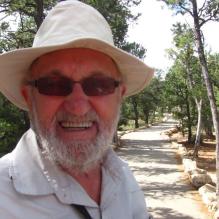John Morton (cognitive Scientist) on:
[Wikipedia]
[Google]
[Amazon]
 John Morton,
John Morton,
*Fava, L. & Morton, J. (2009) Causal modeling of panic disorder theories. ''Clinical Psychology Review,'' 29, 623–63
*Krol, N., Morton, J. & De Bruyn, E. (2004). Theories of conduct disorder: a Causal Modelling analysis. ''Journal of Child Psychology and Psychiatry,'' 45, 727-74
*Morton, J., & Frith, U. (1995). Causal Modelling: A Structural Approach to Developmental Psychopathology. In: Cicchetti, D. & Cohen, D.J. (Eds.), ''Manual of Developmental Psychopathology.Volume 1.'' New York:Wiley, 357–39
*Ibbotson, N. & Morton, J. (1981). Rhythm and dominance. ''Cognition'', 9, 125‑13
*Morton, J. (1976). On recursive reference. ''Cognition'', 4, 30
*Garner, W.R. & Morton, J. (1969). Perceptual independence: Definitions, models and experimental paradigms. ''Psychological Bulletin'', 72, 233‑25
*Morton, J. (1968). Considerations of grammar and computation in language behaviour. In: Catford, J.C. (Ed). ''Studies in Language and Language Behaviour'', CRLLB Progress Report No. VI, University of Michigan, 499‑54
*For a full list of Morton's publications please see https://johnmorton.co.uk/professional-life/bibliography-2/.
 John Morton,
John Morton, OBE
The Most Excellent Order of the British Empire is a British order of chivalry, rewarding contributions to the arts and sciences, work with charitable and welfare organisations,
and public service outside the civil service. It was established o ...
, FRS (born 1933) is an emeritus professor at the Institute of Cognitive Neuroscience
UCL Neuroscience is a research domain that encompasses the breadth of neuroscience research activity across University College London's (UCL) School of Life and Medical Sciences. The domain was established in January 2008, to coordinate neurosci ...
and was the director of the former Medical Research Council (MRC)
The Medical Research Council (MRC) is responsible for co-coordinating and funding medical research in the United Kingdom. It is part of United Kingdom Research and Innovation (UKRI), which came into operation 1 April 2018, and brings together t ...
Cognitive Development Unit (CDU) at University College London
, mottoeng = Let all come who by merit deserve the most reward
, established =
, type = Public research university
, endowment = £143 million (2020)
, budget = ...
.
Research
Morton's research focuses on eventmemory
Memory is the faculty of the mind by which data or information is encoded, stored, and retrieved when needed. It is the retention of information over time for the purpose of influencing future action. If past events could not be remembered, ...
in adults and children; effects of memory on recall of events; types of memory system; memory pathologies; multiple personality disorder; cognitive models of memory; development of cognitive abilities; and causal models of developmental disorders, particularly autism
The autism spectrum, often referred to as just autism or in the context of a professional diagnosis autism spectrum disorder (ASD) or autism spectrum condition (ASC), is a neurodevelopmental condition (or conditions) characterized by difficulti ...
and dyslexia
Dyslexia, also known until the 1960s as word blindness, is a disorder characterized by reading below the expected level for one's age. Different people are affected to different degrees. Problems may include difficulties in spelling words, r ...
.
One of his most important theories is the logogen model of word recognition. Morton has also worked, with Mark H. Johnson, on face recognition in infants.
Organisational affiliations
Morton is a Fellow of the Royal Society.Selected publications
*Morton, J. (2017) Interidentity amnesia in dissociative identity disorder. ''Cognitive Neuropsychiatry.'' 22(4):315-330. doi: 0.1080/13546805.2017.1327848. Epub 2017 May 25. *Michael Kopelman & John Morton (2015) - Amnesia in an actor: learning and re-learning of play passages despite severe autobiographical amnesia. ''Cortex'', 67, 1–14. doi: 10.1016/j.cortex.2015.03.001. Epub 2015 Mar 1*Fava, L. & Morton, J. (2009) Causal modeling of panic disorder theories. ''Clinical Psychology Review,'' 29, 623–63
*Krol, N., Morton, J. & De Bruyn, E. (2004). Theories of conduct disorder: a Causal Modelling analysis. ''Journal of Child Psychology and Psychiatry,'' 45, 727-74
*Morton, J., & Frith, U. (1995). Causal Modelling: A Structural Approach to Developmental Psychopathology. In: Cicchetti, D. & Cohen, D.J. (Eds.), ''Manual of Developmental Psychopathology.Volume 1.'' New York:Wiley, 357–39
*Ibbotson, N. & Morton, J. (1981). Rhythm and dominance. ''Cognition'', 9, 125‑13
*Morton, J. (1976). On recursive reference. ''Cognition'', 4, 30
*Garner, W.R. & Morton, J. (1969). Perceptual independence: Definitions, models and experimental paradigms. ''Psychological Bulletin'', 72, 233‑25
*Morton, J. (1968). Considerations of grammar and computation in language behaviour. In: Catford, J.C. (Ed). ''Studies in Language and Language Behaviour'', CRLLB Progress Report No. VI, University of Michigan, 499‑54
*For a full list of Morton's publications please see https://johnmorton.co.uk/professional-life/bibliography-2/.
Honours and awards
* 1988 British Psychological Society President's Award. * 1990 Member, Academiae Europaeae * 1997 Honorary Fellow, British Psychological Society * 1998 OBE * 2000 Honorary Fellow, Institute of Cognitive Neuroscience * 2001 Honorary Member, Experimental Psychology Society * 2001 Neuronal Plasticity Prize of /La Fondation IpsenReferences
1933 births Academics of University College London Autism researchers English psychologists Fellows of the Royal Society Living people Memory researchers Officers of the Order of the British Empire {{UK-psychologist-stub